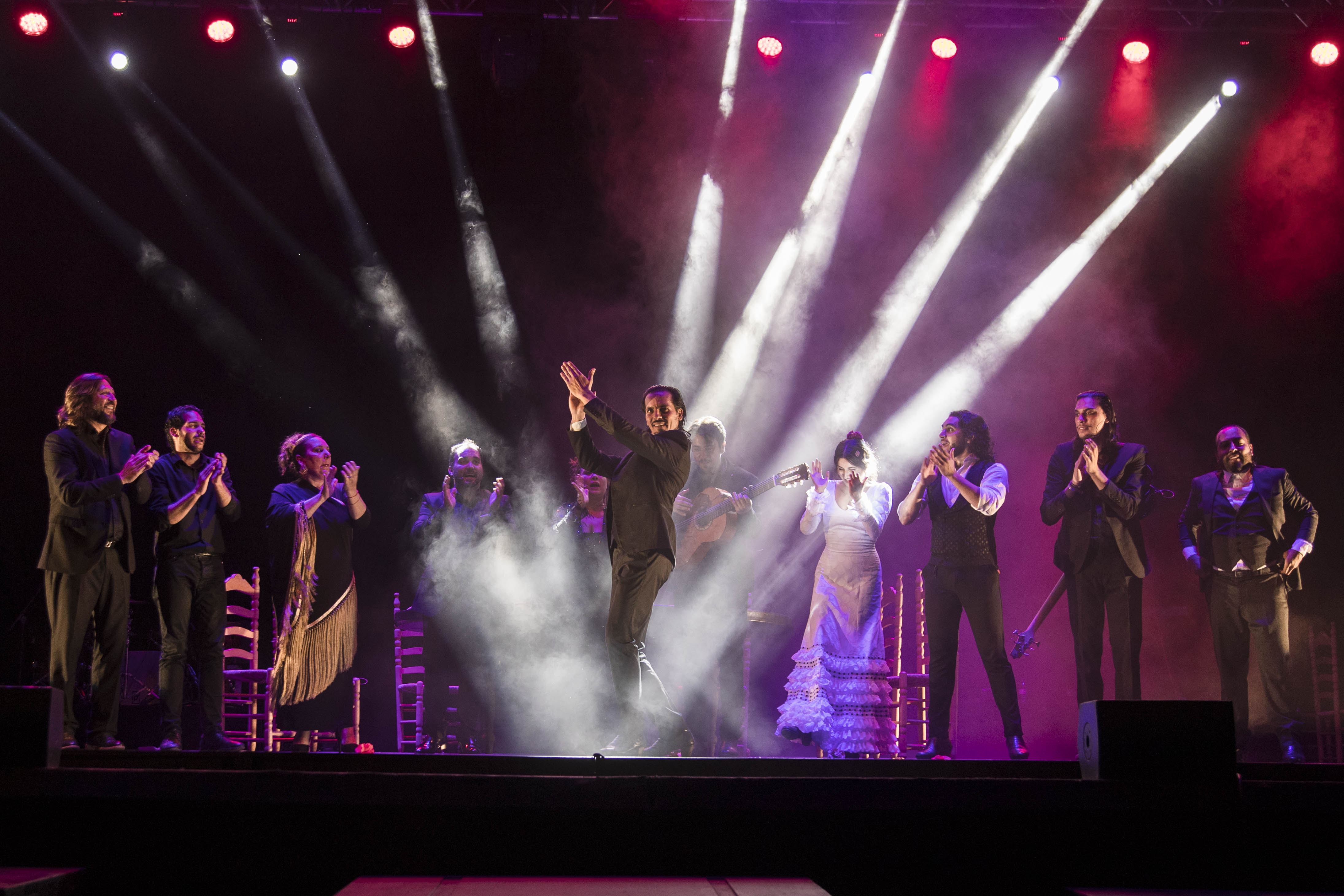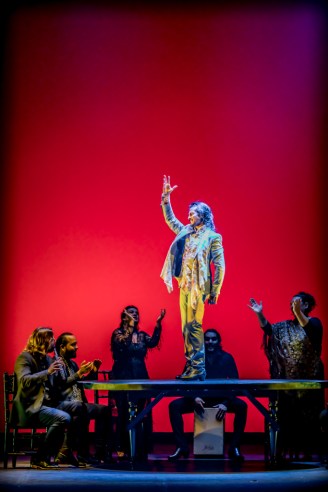Farruquito’s ‘Flamenco Puro’
Spanish Master Performs at Arlington

Living in Santa Barbara, one can’t help feeling the influence of the powerful Hispanic aesthetic that surrounds us every day. This broad international current of creativity continues to activate deep structures of feeling and makes what happens here part of a story that extends back through California, Mexico, and Latin America all the way to the ancient Mediterranean.

The most distinctive thread that comes down to us from Spain begins in Andalusia, where flamenco originated, and where Farruquito, who will perform at the Arlington on Tuesday, November 5, thanks to UCSB Arts & Lectures, is from. The distinctive rhythms and spectacular showmanship that have made flamenco a worldwide sensation derive from creative lineages that are most often transmitted along family lines, and Farruquito is no exception. He began performing in public at the age of 4, when he danced alongside his grandfather on Broadway in Flamenco Puro. At 11, he appeared in the best-known film about the dance, Carlos Saura’s Flamenco. More recently, Farruquito stole the show as Carmelo in the Los Angeles Philharmonic’s 2015 production of Manuel de Falla’s ballet El Amor Brujo, a performance directed by Gustavo Dudamel.
This upcoming event offers the Santa Barbara audience an unusual opportunity to experience the purest form of flamenco as understood and performed by its foremost contemporary advocate. In a recent email exchange, Farruquito answered the Independent’s questions about his art, his life, and the spiritual legacy of his family.
You have had a life that begs to be translated into film, and you have been featured in Carlos Saura’s film Flamenco. Are there any offers now to make more movies? I would love to be involved in film; I love movies and I think any stage performer to an extent is an actor as well. The story of my life is probably like a script to a movie, but maybe I’m still too young to have a movie about only myself. What I do have in mind is to make a film about the life of my grandfather Farruco and the rest of my family. That story is incredible.
You come from flamenco royalty, yet your grandfather El Farruco was a working person in his roots. How do you reconcile the artistic royalty of flamenco with its democratic identity and audience? I was only 15 when my grandfather died. I wish I had been older to better understand his immensity as an artist. But in any case, I grew up admiring him and knowing that the flamenco world considered him the absolute best.
I understand that your style represents something new in relation to your ancestors. How would you describe what you have personally contributed to flamenco? I have no idea! My grandfather always told me to learn from everyone but never imitate anyone, not even him. And that’s what I do. I dance as I feel, and I don’t let myself get carried away by trends or artistic tendencies of the moment. I just keep working so that when I dance, people know things about me without me having to tell them.
In the show that you are presenting on this tour, how do you convey the stories and personalities of your parents and grandparents? Are they with you in spirit? Always. I feel them in my steps. I ask them questions, and they answer me. God knows it’s true.
4•1•1 | UCSB Arts & Lectures presents Farruquito on Tuesday, November 5, 7 p.m., at The Arlington Theatre (1317 State St.). Call 893-3535 or see artsandlectures.ucsb.edu.




You must be logged in to post a comment.